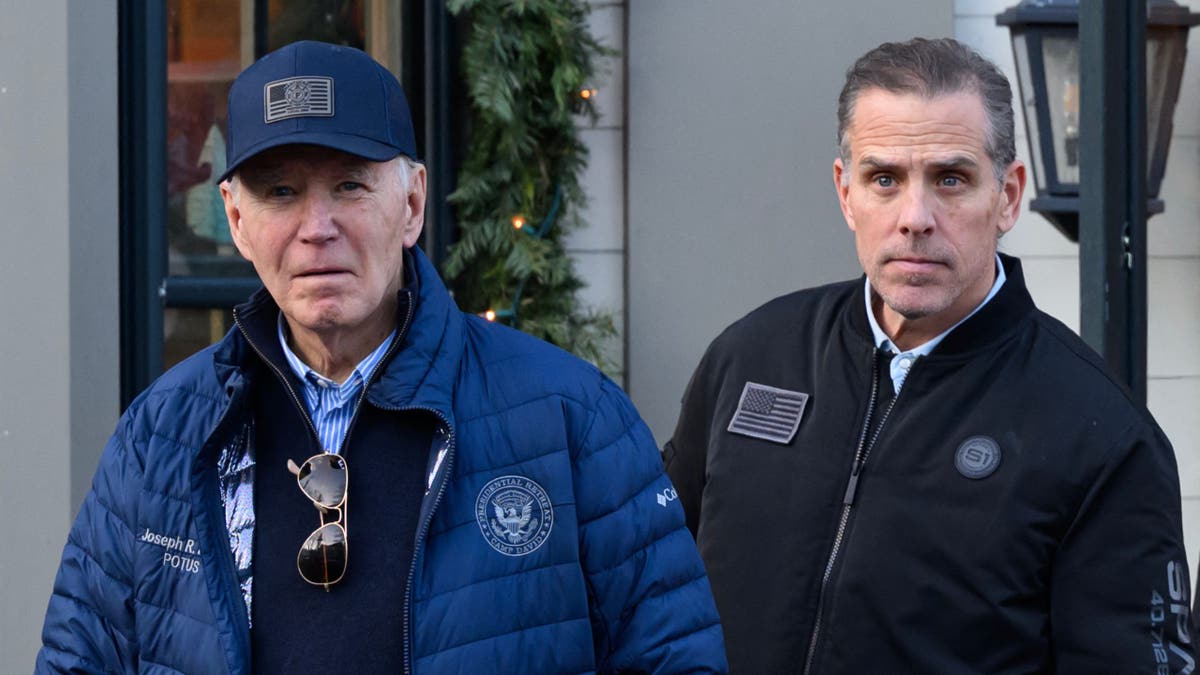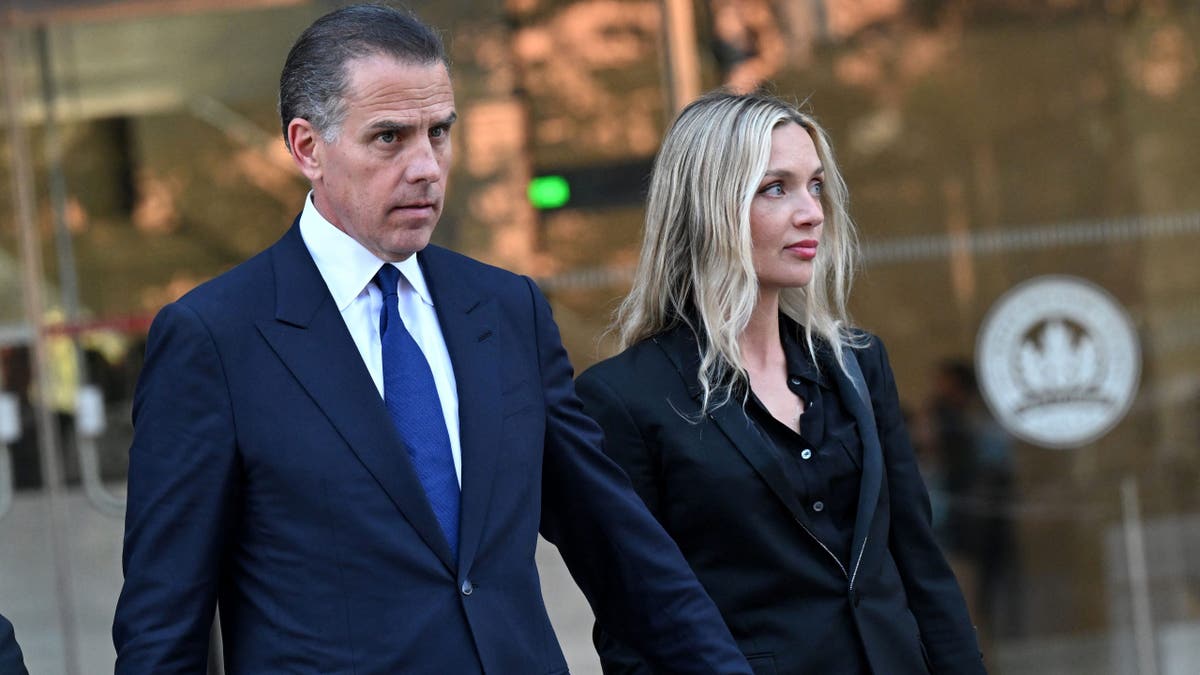In a surprising turn of events, President Biden granted his son, Hunter Biden, a full and unconditional pardon, covering offenses committed or potentially committed between January 1, 2014, and December 1, 2024. This decision contradicts previous statements made by the president, where he explicitly denied any intention of pardoning his son.
During a June interview with ABC News anchor David Muir, Biden firmly stated he would accept the jury's outcome in Hunter's then-ongoing federal trial and ruled out a pardon. He reiterated this stance at the G-7 summit in Italy, emphasizing his pride in Hunter's recovery from addiction and his respect for the judicial process.

President Biden and son Hunter Biden in Nantucket, Massachusetts on Nov. 29, 2024. (MANDEL NGAN/AFP via Getty Images)
However, Biden's recent pardon announcement cited political motivations behind the charges against Hunter, claiming they were instigated by his political adversaries. He also highlighted the collapse of a previously negotiated plea deal, which he attributed to political pressure, and expressed concern over the relentless attacks targeting both him and his son.

Hunter Biden and his wife Melissa Cohen leave court in Los Angeles, California, on Sept. 5, 2024. (ROBYN BECK/AFP via Getty Images)
Hunter Biden faced multiple legal challenges, including tax-related offenses and a federal gun charge. The initial plea deal, which would have likely avoided prison time, fell apart under judicial scrutiny, leading to his indictment. The pardon effectively nullifies these legal proceedings.
House Republicans previously attempted to leverage Hunter Biden's business dealings for impeachment proceedings against President Biden, who has consistently denied any involvement or personal gain from his son's activities. This pardon is likely to further fuel the political debate surrounding the Biden family.
Comments(0)
Top Comments